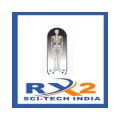
Overview
Medical diagnostics and clinical laboratories play a crucial role in healthcare by providing essential information for the diagnosis, treatment, and monitoring of various medical conditions. These laboratories are specialized facilities equipped with advanced instruments and technologies that enable the analysis of biological samples such as blood, urine, tissue, and other bodily fluids.
Depending on specific features and functions, GAO Tek’s pH meter are sometimes referred to as pH Tester, pH Monitor, Acid-Base Meter, pH Gauge, pH Analyzer, pH Sensor, pH Indicator, pH Probe, pH Measuring Device, pH Reader, pH Checker, pH Checker, pH Instrument, pH Reader, pH Measurement Tool, pH Assessment Device, pH Recording Device, pH Logging Equipment, pH Inspection Device.
GAO Tek’s pH meter have the following applications in medical diagnostics and clinical laboratories:
- Blood Gas Analysis: pH meters are crucial for measuring the pH of blood and other bodily fluids, such as cerebrospinal fluid, to assess the acid-base balance. This information is vital for diagnosing and monitoring conditions like acidosis and alkalosis.
- Urine Analysis: pH measurement of urine helps in diagnosing various kidney-related disorders, urinary tract infections, and metabolic conditions. Changes in urine pH can indicate underlying health issues.
- Gastric pH Monitoring: pH meters are used to monitor the pH levels in the stomach, which can aid in diagnosing conditions like gastroesophageal reflux disease (GERD) and ulcers.
- In Vitro Fertilization (IVF): pH measurements are essential in assisted reproductive technologies like IVF. Maintaining the appropriate pH levels in culture media is critical for the successful development of embryos.
- Wound Healing Assessment: Monitoring the pH of wounds can provide insights into the healing process. Altered pH levels might indicate infection or impaired healing.
- Cystic Fibrosis Diagnosis: pH measurements of sweat are used as a diagnostic tool for cystic fibrosis, a genetic disorder that affects the respiratory, digestive, and reproductive systems.
- Laboratory Reagent Preparation: pH meters are essential for preparing buffers, reagents, and culture media with precise pH levels for various experiments and analyses in clinical laboratories.
- Enzyme Activity Studies: Enzyme activity is often pH-dependent. pH meters help researchers and clinicians optimize the pH conditions for enzymatic reactions, aiding in diagnostic tests and research studies.
- Drug Formulation: pH meters play a role in pharmaceutical research and development, helping scientists determine the optimal pH for drug formulations and stability.
- Monitoring Body Fluids during Surgery: During surgical procedures, monitoring the pH of various body fluids, such as peritoneal or pleural fluid, can provide information about the patient’s physiological status.
- Clinical Chemistry: Many clinical chemistry tests involve enzymatic reactions that are sensitive to pH changes. pH meters are used to ensure accurate results in tests like enzymatic assays, immunoassays, and DNA/RNA analysis.
- Diabetes Management: People with diabetes can use pH meters to test the acidity of urine or saliva, which can provide insights into blood glucose levels and help in diabetes management.
- Dialysis Monitoring: pH measurements are important for monitoring the acid-base balance in dialysis solutions used to treat patients with kidney failure.
- Microbiological Studies: pH is a critical factor in microbiology, affecting the growth and survival of microorganisms. pH meters are used to create optimal growth conditions for specific bacteria and fungi.
- Quality Control in Clinical Laboratories: pH measurements are part of quality control procedures to ensure the accuracy and reliability of various diagnostic tests.
More information on pH meter and their applications in other industries can be found on this page.
This category page lists related products.
Complying with Industry Standards
GAO Tek’s pH meter comply or help our customers comply with the industry standards such as:
- ISO 17025
- ISO 3696
- ASTM E70
- ASTM E2709
- USP General Chapter<79>pH
- CLSI Gp47
- CLSI C27-A2
- FDA Guidance Documents
- NIST SP 260-181
Complying with Government Regulations
GAO Tek’s pH meter comply or help our customers comply with the U.S. government regulations such as:
- FDA Regulation
- Clinical Laboratory Improvement Amendments (CLIA)
- Good Manufacturing Practices (GMP)
- ISO 13485
- Labeling and Instructions for use
- Medical Device Reporting (MDR)
GAO Tek’s pH meter comply or help our clients comply with the Canadian regulations such as:
- Medical Device Licensing
- Device Classification
- Quality Management System
- Device Labeling and Instructions
- Adverse Event Reporting
- Clinical Evidence
- Post-Market Surveillance
- Guidance Documents
- Certification and Recognition
GAO Tek’s pH meter comply or help our clients comply with the Mexican regulations such as:
- Product Registration
- Quality Standards
- Labeling and Instructions for Use
- Clinical Validation
- Adverse Event Reporting
- Post-Market Surveillance
- Import and Distribution
GAO Tek’s pH meter comply or help our clients comply with the European regulations such as:
- Medical Device Regulation (MDR)
- In Vitro Diagnostic Regulation (IVDR)
- CE Marking
- ISO Standards
- Performance Standards and Calibration
- Laboratory Accreditation
- Data Protection and Privacy
- National Regulation
Case Studies of pH meter in Medical Diagnostics and Clinical Laboratories
pH meter are sometimes called as Acid-Base Guage, Hydrogen Ion Indicator, pH Tester, Alkalinity Analyzer, pH Checker, Proton Concentration Detector, pH Scale Reader, Acidic-Alkaline Monitor, pH Measurement Device, Hydrogen pH Probe, Ionic Balance Meter, pH Level Gauge, Acidic-Basic Titration Tool, pH Value Sensor, Hydrogen Potency Meter, pH Reader, Ionic Equilibrium Analyzer, pH Monitor, Acidic-Basic Balance Tester, pH Determination Device.
Here are some practical examples of using pH meter in medical diagnostics and clinical laboratories:
A clinical laboratory in the Northeast uses pH meters to diagnose and monitor acid-base imbalances in patients with conditions such as diabetic ketoacidosis, renal failure, or respiratory distress. The pH meter aids in assessing the patient’s blood pH, which guides treatment decisions.
A medical center in the region utilizes pH meters to analyze cerebrospinal fluid (CSF) samples from patients with suspected neurological disorders. Abnormal pH levels in the CSF can provide insights into conditions like bacterial or viral meningitis, multiple sclerosis, or Guillain-Barré syndrome.
A fertility clinic in the Northeast employs pH meters to monitor the pH levels of culture media during IVF procedures. Maintaining optimal pH conditions is critical for successful embryo development and implantation.
Hospitals and research institutions use pH meters to ensure the appropriate pH levels of preservation solutions for organs during transplantation. Proper pH preservation helps extend the viability of organs, improving transplant success rates.
Medical facilities in the Northeast use pH meters to measure gastric pH levels in patients with gastrointestinal disorders. This data aids in diagnosing conditions such as gastritis, peptic ulcers, and gastroesophageal reflux disease (GERD).
Clinical laboratories employ pH meters to assess wound pH levels, which can indicate the progression of wound healing. Deviations from the normal pH range might suggest infection or poor healing.
Hospitals utilize pH meters to analyze urine pH in patients with metabolic disorders like renal tubular acidosis. Abnormal urinary pH levels can provide valuable diagnostic information.
Research institutions collaborate with clinical laboratories to study pH variations in cancerous tissues and the impact of pH on drug efficacy. pH meters play a role in understanding the tumor microenvironment and drug .
Dental clinics and research centers use pH meters to assess the pH levels of dental plaque. This information is relevant for understanding the oral environment’s impact on dental health and developing preventive strategies.
Medical centers that perform cardiac surgeries employ pH meters to monitor patients’ blood pH levels during cardiopulmonary bypass procedures. Maintaining proper pH is crucial for preventing complications.
pH meters are used to measure the acidity or alkalinity of blood samples, which is crucial in assessing a patient’s respiratory and metabolic status. Case studies might involve instances where accurate pH measurement influenced treatment decisions for patients with conditions like respiratory failure or diabetic ketoacidosis.
Urine pH can provide insights into various medical conditions such as kidney stones and urinary tract infections. Case studies could highlight how pH measurements aided in the diagnosis and monitoring of these conditions.
pH measurement of cerebrospinal fluid can be important in diagnosing conditions like meningitis or other neurological disorders. Case studies might illustrate how pH measurements contributed to timely and accurate diagnoses.
pH meters are used in cell culture laboratories to maintain optimal pH conditions for cell growth. Case studies might demonstrate how precise pH control improved the viability and yield of cell cultures, which can be crucial in various medical research contexts.
pH levels in wound exudates can impact the healing process. Case studies could show how pH monitoring played a role in assessing wound healing progress and adjusting treatment plans accordingly.
Monitoring gastric pH can be important in assessing conditions like gastroesophageal reflux disease (GERD) or determining the effectiveness of acid-suppressing medications. Case studies might focus on how pH measurements helped guide treatment strategies.
pH control is crucial in IVF procedures to create an optimal environment for fertilization and embryo development. Case studies could discuss how maintaining precise pH levels contributed to successful IVF outcomes.
pH plays a significant role in the formulation and stability of medications. Case studies might highlight how pH measurements were used to ensure the quality and efficacy of pharmaceutical products.
Enzyme activity can be highly pH-dependent. Case studies could explore how pH measurements contributed to understanding enzyme kinetics and optimizing enzymatic reactions for diagnostic assays.
A case study conducted at a prominent hospital in the South Region evaluated the accuracy and reliability of pH measurements using a state-of-the-art pH meter for blood gas analysis. The study assessed the instrument’s performance in measuring pH levels in arterial blood samples and its impact on clinical decision-making for patients with respiratory and metabolic disorders.
This case study focused on the implementation of portable pH meters for point-of-care testing in rural clinics across the Southern states. Researchers examined the feasibility of using pH meters to quickly diagnose conditions such as urinary tract infections and assess wound healing progress, particularly in underserved areas with limited access to central laboratories.
A case study investigated the role of pH meters in maintaining quality control in clinical laboratories of a large healthcare network in the South. The study highlighted the importance of accurate pH measurements for various laboratory processes, including culture media preparation, enzyme assays, and cell culture maintenance.
Researchers at a university-affiliated medical center in the South conducted a case study to evaluate the use of pH meters in monitoring gastric pH levels in patients with gastrointestinal disorders. The study aimed to correlate pH data with symptoms and provide insights into the management of conditions such as gastroesophageal reflux disease (GERD)
This case study took place at a research institute in the South and explored the integration of pH-sensitive microfluidic platforms with pH meters for the early detection of cancer biomarkers in blood and tissue samples. The study demonstrated the potential of pH-based assays for improving cancer diagnosis and treatment monitoring.
A case study carried out at women’s health clinics across multiple Southern states assessed the use of pH meters to measure vaginal pH levels in women with various gynecological conditions. The study aimed to determine the diagnostic value of vaginal pH measurements in identifying infections.
Researchers at a neonatal intensive care unit in the South conducted a case study to investigate the accuracy and precision of pH meters in monitoring acid-base balance in premature infants. The study emphasized the critical role of pH measurements in guiding treatment strategies and preventing complications in this vulnerable population.
A study conducted at a clinical laboratory in California aimed to assess the gastric pH levels in patients with GERD using pH meters. The study aimed to determine the effectiveness of acid-suppressing medications and their impact on restoring normal pH levels.
A case study from a medical center in Washington focused on using pH meters to monitor blood pH levels in diabetic patients. The goal was to understand the correlation between blood pH and glucose levels, helping clinicians manage diabetes-related complications.
Researchers at a clinical laboratory in Oregon conducted a study to analyze urine pH in patients with a history of kidney stones. pH meters were used to measure urine pH levels, providing insights into the role of pH in kidney stone formation and suggesting dietary interventions.
A research facility in California employed pH meters to monitor and control the pH of cell culture media. By maintaining optimal pH levels, researchers aimed to improve cell viability and ensure accurate results in various cell biology experiments.
A clinical study in Nevada utilized pH meters to measure vaginal pH levels in women with recurrent vaginal infections. The data collected helped in understanding the role of vaginal pH in maintaining a healthy microbial balance and preventing infections.
A case study conducted in a medical diagnostics laboratory in Arizona involved analyzing CSF pH using pH meters in patients with neurological disorders. This research aimed to identify potential links between CSF pH and specific neurological .
A research project in California focused on using pH meters to monitor the pH levels in chronic wounds. The study aimed to explore the relationship between wound pH and the efficacy of wound healing .
A clinical laboratory in California conducted a study involving pH meters to assess the pH levels of water sources used in hemodialysis. Maintaining the appropriate water pH was crucial to prevent complications in patients undergoing .
An intensive care unit in Oregon utilized pH meters to monitor arterial blood pH in critically ill patients. The study aimed to detect and manage acid-base imbalances promptly, contributing to better patient outcomes.
Researchers at a dental clinic in Washington employed pH meters to measure saliva pH levels in individuals with different oral health conditions. The study aimed to understand the relationship between oral pH and the development of dental.
Case study involving the use of pH meters to monitor the pH levels of blood samples in critical care units, aiding in the early detection of acid-base imbalances and guiding appropriate treatment strategies.
This case study might focus on using pH meters to measure urine pH, aiding in the assessment of kidney function and the diagnosis of conditions such as kidney stones or urinary tract infections.
pH meters can be employed to monitor the pH levels of gastric contents, helping diagnose conditions like acid reflux, gastritis, and other gastrointestinal disorders.
This case study could highlight the application of pH meters in analyzing the pH of cerebrospinal fluid samples, which can provide insights into neurological conditions and infections.
pH meters are often used to measure vaginal pH levels, aiding in the diagnosis of conditions like bacterial vaginosis and candidiasis.
pH meters can be utilized to monitor pH levels in wound exudates, facilitating wound healing assessment and early detection of infections.
In cases of cryoablation procedures (e.g., for treating certain types of cancer), pH meters can play a role in monitoring tissue pH changes during and after the procedure.
This case study might explore how pH meters are used in clinical laboratories to diagnose metabolic acidosis or alkalosis by analyzing blood samples.
Some case studies could focus on the integration of pH meters into point-of-care testing devices, enabling rapid on-site pH measurement for various medical .
pH meters can be used to measure the pH of amniotic fluid, helping to assess fetal health and development during .
This case study might highlight how pH meters are utilized to monitor acid-base imbalances in diabetic patients, guiding insulin therapy and This case study might highlight how pH meters are utilized to monitor acid-base imbalances in diabetic patients, guiding insulin therapy and treatment.
pH meters can be employed to assess saliva pH levels, aiding in the evaluation of oral health conditions and potential risks of dental caries.
pH meters are commonly used in clinical laboratories to analyze blood samples and assess acid-base imbalances in patients. A case study could focus on how pH meters aided in diagnosing and monitoring conditions like metabolic acidosis or alkalosis in Mexican patients.
pH meters are utilized to measure the pH levels of urine samples, which can provide insights into renal health and the presence of urinary tract infections. A case study might delve into how pH measurements contributed to early detection and management of kidney-related disorders in Mexican populations.
In gastroenterology, pH meters are employed to measure gastric acid levels for patients with conditions such as gastroesophageal reflux disease (GERD). A case study could examine the role of pH meters in diagnosing and treating GERD cases among Mexican.
Hospitals often use pH meters to ensure the pH levels of intravenous (IV) fluids are appropriate, preventing potential adverse reactions when administered to patients. A case study might explore how pH monitoring of IV fluids improved patient safety in Mexican healthcare.
Some cancer treatments can lead to systemic acid-base imbalances. pH meters can aid in monitoring the pH levels in the body during and after cancer treatments. A case study could focus on the role of pH meters in managing cancer patients’ overall health in Mexico.
pH meters can assist in evaluating the pH levels of wounds, which is crucial for effective wound healing. A case study might highlight how pH measurements helped in tracking wound healing progress and preventing complications in Mexican.
pH meters are often used to analyze umbilical cord blood or other samples in neonatal intensive care units. A case study could examine how pH measurements contributed to the assessment and management of neonatal health in pH meters are often used to analyze umbilical cord blood or other samples in neonatal intensive care units. A case study could examine how pH measurements contributed to the assessment and management of neonatal health in Mexico.
pH measurements can aid in identifying infections, such as bacterial vaginosis, which affects many women. A case study might explore how pH meters helped diagnose and manage infections in women’s health clinics in Mexico.
pH meters can play a role in assessing oral health, including the acidity levels of saliva that contribute to dental caries. A case study could investigate how pH measurements were integrated into dental care practices in Mexico.
pH meters can be used in diabetes management to monitor the pH of urine or other bodily fluids for ketone production. A case study might delve into how pH measurements contributed to diabetes care and education in Mexican patients.
Monitoring of blood pH in critical care patients Description: A renowned university hospital in Zurich utilized pH meters to monitor the blood pH levels of critically ill patients in the intensive care unit. The accuracy and reliability of the pH measurements were crucial for timely medical interventions.
Urine and saliva pH testing for metabolic disorders Description: A diagnostic laboratory chain in London used pH meters to analyze urine and saliva samples for patients suspected of having metabolic disorders. Consistent pH measurements aided in diagnosing conditions like metabolic acidosis and alkalosis.
Gastric pH monitoring for gastroesophageal reflux disease (GERD) Description: A gastroenterology clinic employed pH meters to perform ambulatory gastric pH monitoring in patients with suspected GERD. Continuous pH measurements over 24-48 hours helped in assessing acid reflux patterns and optimizing treatment.
pH measurements in dialysate solutions Description: A renal function unit in Paris utilized pH meters to monitor and control the pH levels of dialysate solutions used in hemodialysis procedures. Accurate pH maintenance in dialysate contributed to patient safety and treatment efficacy.
pH assessment of vaginal samples Description: A clinical research institute in Berlin employed pH meters to analyze vaginal pH levels in women participating in studies related to reproductive health. Monitoring vaginal pH aided in understanding conditions such as bacterial vaginosis and candidiasis.
pH monitoring in neonatal intensive care Description: A pediatric hospital in Rome used pH meters to monitor the pH levels of gastric aspirates in neonates admitted to the intensive care unit. Precise pH measurements played a role in evaluating feeding tolerance and preventing complications.
Amsterdam, Netherlands Application: pH measurements in cerebrospinal fluid (CSF) analysis Description: A clinical chemistry laboratory in Amsterdam employed pH meters to analyze pH levels in cerebrospinal fluid samples. Accurate pH assessment supported the diagnosis of neurological conditions and infections.
GAO RFID Inc. a sister company of GAO Tek Inc., is ranked as a top 10 RFID supplier in the world. Its RFID, BLE, and IoT products have also been widely used in medical diagnostics and clinical laboratories.
Use of pH meter with Leading Software and Cloud Services in Medical Diagnostics and Clinical Laboratories
GAO Tek has used or has facilitated its customers to use GAO’s pH meter with some of the leading software and cloud services in their applications. Examples of such leading software and cloud services include:
- Lab Management Software
- Data Analysis and Visualization
- pH Data Collection and Analysis
- Laboratory Information System
- Data Integration and Reporting
- Electric Health Record Integration
- Quality Control and Compliance
- Instrument Control and Data Transfer
- LabX Titration Software by Metter Toledo
- Thermo Fisher Scientific pH Analysis Software
- Hach HQd Laboratory pH Meter Software
- Metroham tiamo Jenway pH Calibration and Data Analysis Software
- OHAUS Starter Series pH Meter Software
- Lab Ware LIMS
- Data Analysis Software
- LabVIEW pH Meter Software
- Open-source Data Analysis Tools
- pH Meter Manufactures Proprietary Software
- Excel or Google Sheets
- Amazon Web Service
- Microsoft Azure
- Google Cloud Platform
- IBM Coud
- Oracle Cloud Infrastructure
- Cloud Foundry
- LabArchives
- Labguru
- Benchling
- CDD Vault
GAO Tek’s pH meter and their applications in other industries are listed on this page
Other related products can be found at this category page.
Information, Electronic & Telecommunications Industries | RFID Solutions
Meeting Customers’ Demands
Large Choice of Products
In order to satisfy the diversified needs of their corporate customers, GAO Tek Inc. and its sister company GAO RFID Inc. together offer a wide choice of testing and measurement devices, network products, RFID, BLE, IoT, and drones.
Fast Delivery
To shorten the delivery to our customers, GAO has maintained a large stock of its products and is able to ship overnight within the continental U.S. and Canada, and fast delivery to Mexico and Europe from the nearest warehouse.
Local to Our Customers
We are located in both the U.S. and Canada. We travel to customers’ premises if necessary. Hence, we provide a very strong local support to our customers in North America, particularly the U.S., Canada and Mexico and Europe. Furthermore, we have built partnerships with some integrators, consulting firms and other service providers in different cities to further strengthen our services. Here are some of the service providers in medical diagnostics and clinical laboratories
we have worked with to serve our joint customers:
- Online Research
- Industry Associations and Events
- Business Directories
- Consultation
- Market Research Reports
- Networking
- Corner Corporation
- Epic Systems Corporation
- McKesson Corporation
- Siemens Healthineers
- Agilent technologies
- Roche Diagnostics
- LabCorp
- Quest Diagnostics
- IBM Waston Health
- Change Healthcare
- Health Catalyst
- LUMEDX Coeporation
- Industry Reports and Directories
- Trade Shows and Conferences
- Industry Publications and Journals
- Professional Networks
- Online Research
- LinkedIn and SocialMedia
- Consult with Experts
- Industry Associations and Directories
- Professional Networks
- Business Directories
- Trade Shows and Conferences
- Web Searches
- Networking
- LinkedIn and Professional Networks
- Contact Industry Associations
GAO Has Many Customers in pH Meter
The products from both GAO Tek Inc. and GAO RFID Inc. have been widely used in medical diagnostics and clinical laboratories by many customers, including some leading companies. Here is more information on applications of GAO RFID Inc.’s products in medical diagnostics and clinical laboratories.
Here are some of GAO’s customers in pH meter:
- pH meter
- Omega
- RX2
- SPER
- PH SCALE
- PLEX
- HUAWEL
- SF
- AP
- AUSTRIP
- SENSORX
- ATI
- BP
- LOREM
- SU
- HACK
- PAGCOR
- CRM


















Contact Us
If you are interested in our products, services or partnering with us, please feel free to contact us by filling out this form:
or email us at sales@gaotek.com
